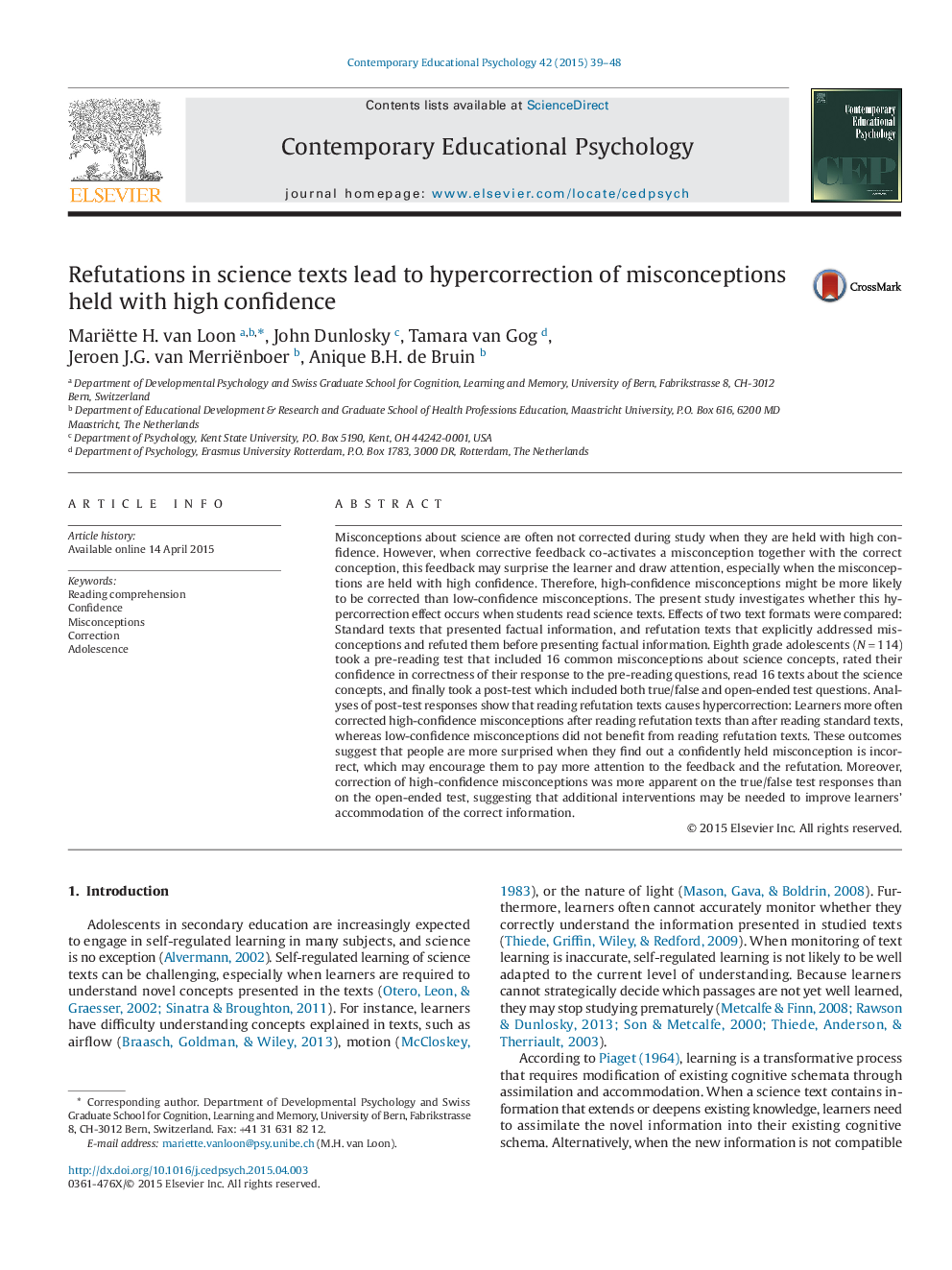| Article ID | Journal | Published Year | Pages | File Type |
|---|---|---|---|---|
| 352547 | Contemporary Educational Psychology | 2015 | 10 Pages |
•High-confidence misconceptions are resistant to change.•We compared effects of standard- and refutation texts on hypercorrection.•Reading refutation texts improved correction of high-confidence misconceptions.•Refutation texts did not improve correction of low-confidence misconceptions.
Misconceptions about science are often not corrected during study when they are held with high confidence. However, when corrective feedback co-activates a misconception together with the correct conception, this feedback may surprise the learner and draw attention, especially when the misconceptions are held with high confidence. Therefore, high-confidence misconceptions might be more likely to be corrected than low-confidence misconceptions. The present study investigates whether this hypercorrection effect occurs when students read science texts. Effects of two text formats were compared: Standard texts that presented factual information, and refutation texts that explicitly addressed misconceptions and refuted them before presenting factual information. Eighth grade adolescents (N = 114) took a pre-reading test that included 16 common misconceptions about science concepts, rated their confidence in correctness of their response to the pre-reading questions, read 16 texts about the science concepts, and finally took a post-test which included both true/false and open-ended test questions. Analyses of post-test responses show that reading refutation texts causes hypercorrection: Learners more often corrected high-confidence misconceptions after reading refutation texts than after reading standard texts, whereas low-confidence misconceptions did not benefit from reading refutation texts. These outcomes suggest that people are more surprised when they find out a confidently held misconception is incorrect, which may encourage them to pay more attention to the feedback and the refutation. Moreover, correction of high-confidence misconceptions was more apparent on the true/false test responses than on the open-ended test, suggesting that additional interventions may be needed to improve learners' accommodation of the correct information.
